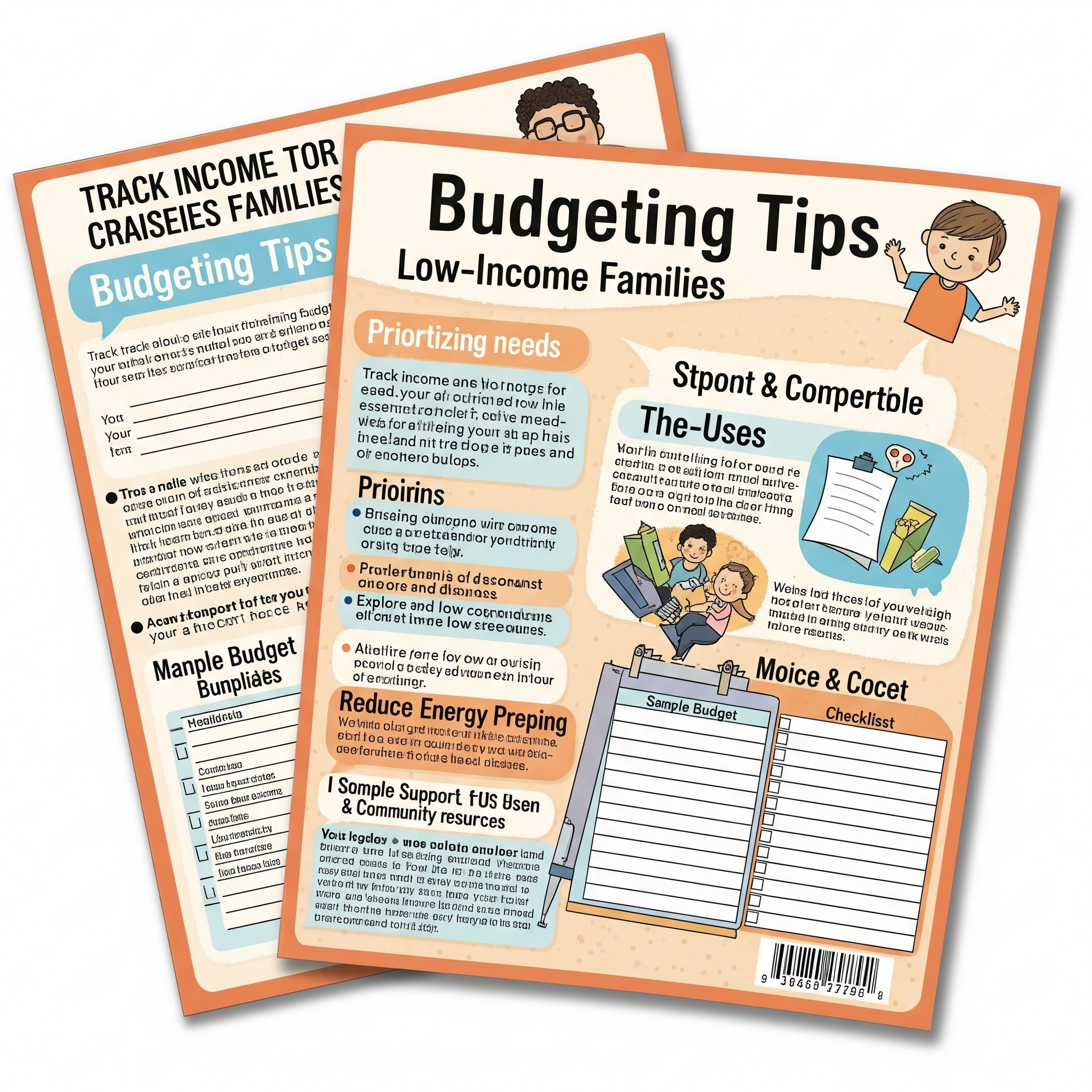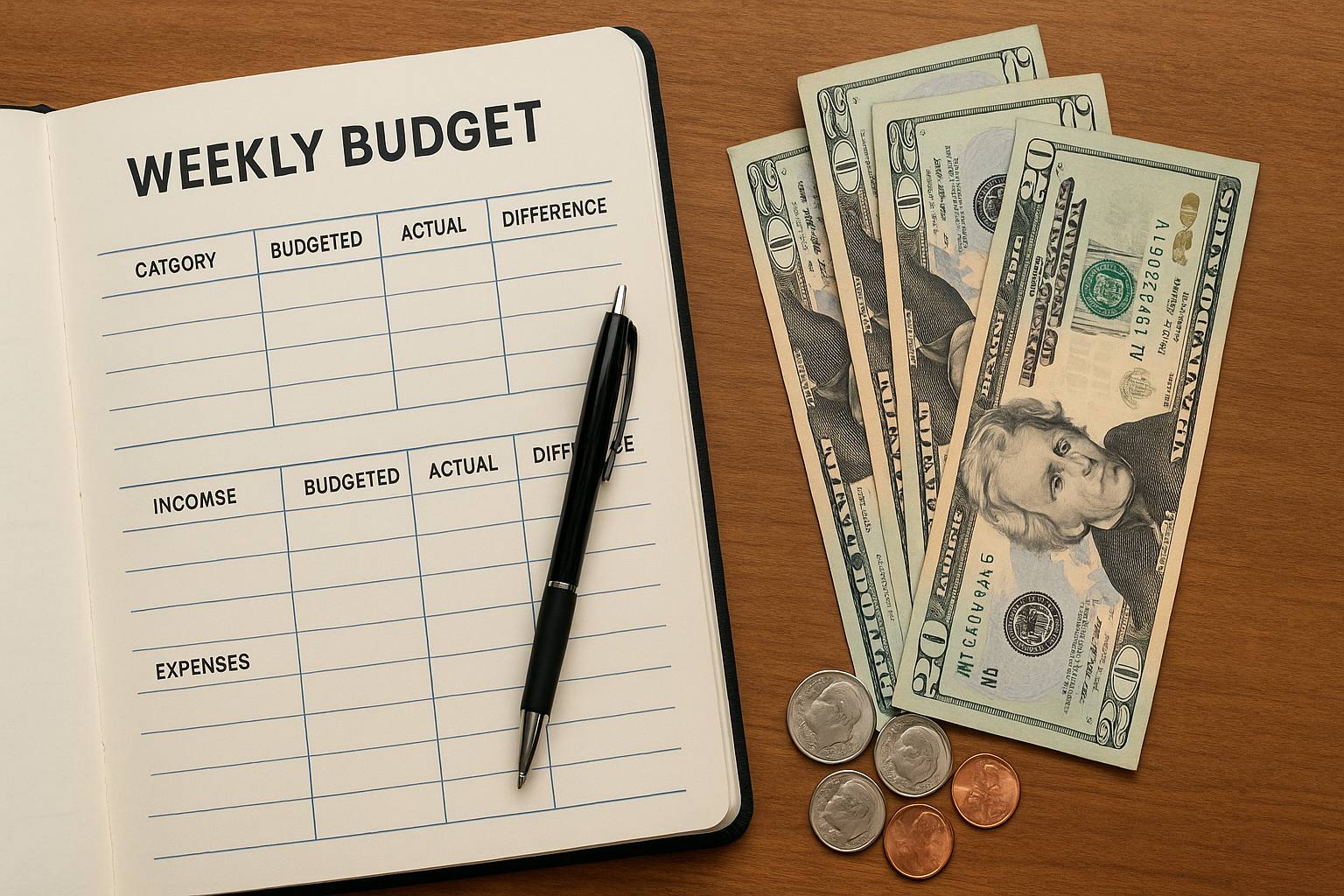10 Life-Changing Budgeting Tips for Low Income Families to Stretch Every Dollar
When you’re raising a family on a limited income, every dollar matters. Budgeting may seem difficult or even frustrating at first, but the truth is—with the right approach—you can achieve financial stability and peace of mind. This guide will walk you through 10 life-changing budgeting tips for low income families that will help you save money, eliminate debt, and reach your financial goals faster.
Let’s dive into how you can make your budget work for your family—not against it.
1. Know Exactly Where Your Money Is Going
The first and most important step is tracking every dollar. Understanding your spending patterns allows you to cut unnecessary expenses and redirect money toward savings or debt.
How to Do It:
-
Use budgeting apps like Goodbudget or EveryDollar.
-
Maintain a simple spending journal if you prefer pen and paper.
-
Categorize your expenses: Essentials, Non-essentials, and Savings.
2. Create a Realistic, Family-Focused Budget
Once you know where your money goes, it’s time to build a plan. A realistic budget should reflect your actual needs, not a version of your life you wish for.
Steps:
-
Prioritize needs over wants (housing, groceries, utilities).
-
Involve your family in budgeting decisions—especially older children. It builds understanding and teamwork.
-
Use the zero-based budgeting method to assign every dollar a job.
3. Focus on Reducing Fixed Expenses
Fixed costs like rent, insurance, and utilities take up a big portion of your budget. But that doesn’t mean they’re non-negotiable.
Tips:
-
Refinance car or home loans to lower interest rates.
-
Compare utility providers if possible.
-
Look for income-based support programs for phone, internet, or housing.
4. Meal Plan and Buy Groceries with a List
Feeding a family is expensive—but it doesn’t have to drain your wallet.
Smart Grocery Hacks:
-
Plan meals weekly and buy only what’s on your list.
-
Shop discount stores, farmer’s markets, or wholesale clubs.
-
Buy generic brands instead of name brands.
This one habit alone can save hundreds each month.
5. Build an Emergency Fund—Even $5 a Week Helps
Emergency funds are non-negotiable for low income families. Unexpected bills happen, and you need a buffer.
How to Build One:
-
Start small: save $5–$10 per week.
-
Automate the transfer to a savings account.
-
Use windfalls (tax refunds, bonuses, cash gifts) to grow it faster.
6. Use Envelopes or Cash for Specific Spending Categories
The cash envelope system is ideal for tight budgets because it prevents overspending.
Categories to Try:
-
Groceries
-
Transportation
-
Dining out
-
Kids’ activities
Once the envelope is empty, that category’s spending is done until next month.
7. Eliminate High-Interest Debt First
Debt can eat away at your budget. Focus on eliminating high-interest debt like credit cards.
Use:
-
The Debt Snowball method: pay off the smallest balances first.
-
The Debt Avalanche method: pay off the highest interest first.
Choose the one that motivates you more, and stick to it consistently.
8. Take Advantage of Community Resources
Many cities and towns offer free or low-cost services to help families in need.
Examples:
-
Food pantries
-
Utility assistance programs
-
Community health clinics
-
Free after-school programs
These resources can help you cut costs while still meeting your family’s needs.
9. Earn Extra Income From Home
Side hustles and part-time gigs can supplement your main income without taking you away from your family.
Ideas:
-
Freelance writing, graphic design, or data entry
-
Online tutoring or teaching English
-
Selling handmade items on Etsy or Facebook Marketplace
-
Babysitting or pet sitting
Even an extra $100–$300 per month can go a long way in your budget.
10. Review and Adjust Your Budget Every Month
Your budget is a living document. It should evolve as your income, expenses, and goals change.
Set a monthly budget review session:
-
Check for unexpected spending
-
Look for patterns and adjust
-
Celebrate wins and learn from setbacks
This habit keeps your finances on track long-term.
Frequently Asked Questions
Can low income families really save money?
Absolutely. While progress may be slow at first, consistent saving—even a few dollars at a time—builds discipline and momentum.
What budgeting method works best for low income?
Zero-based budgeting and the cash envelope system are especially effective because they give every dollar a purpose and help control overspending.
How can I stick to my budget when my kids want everything?
Involve them in the budget process. Let them help plan meals or choose a family activity within a spending limit. Teach them about needs vs. wants early on.
Final Thoughts
Living on a low income doesn’t mean living without hope. With these budgeting tips for low income families, you can take back control of your finances, build security, and make progress toward your goals—even if you’re starting small.
Remember, it’s not about perfection—it’s about progress. One smart decision at a time is all it takes.
Internal Links
External Links (DoFollow)





I believe you have mentioned some very interesting points, appreciate it for the post.